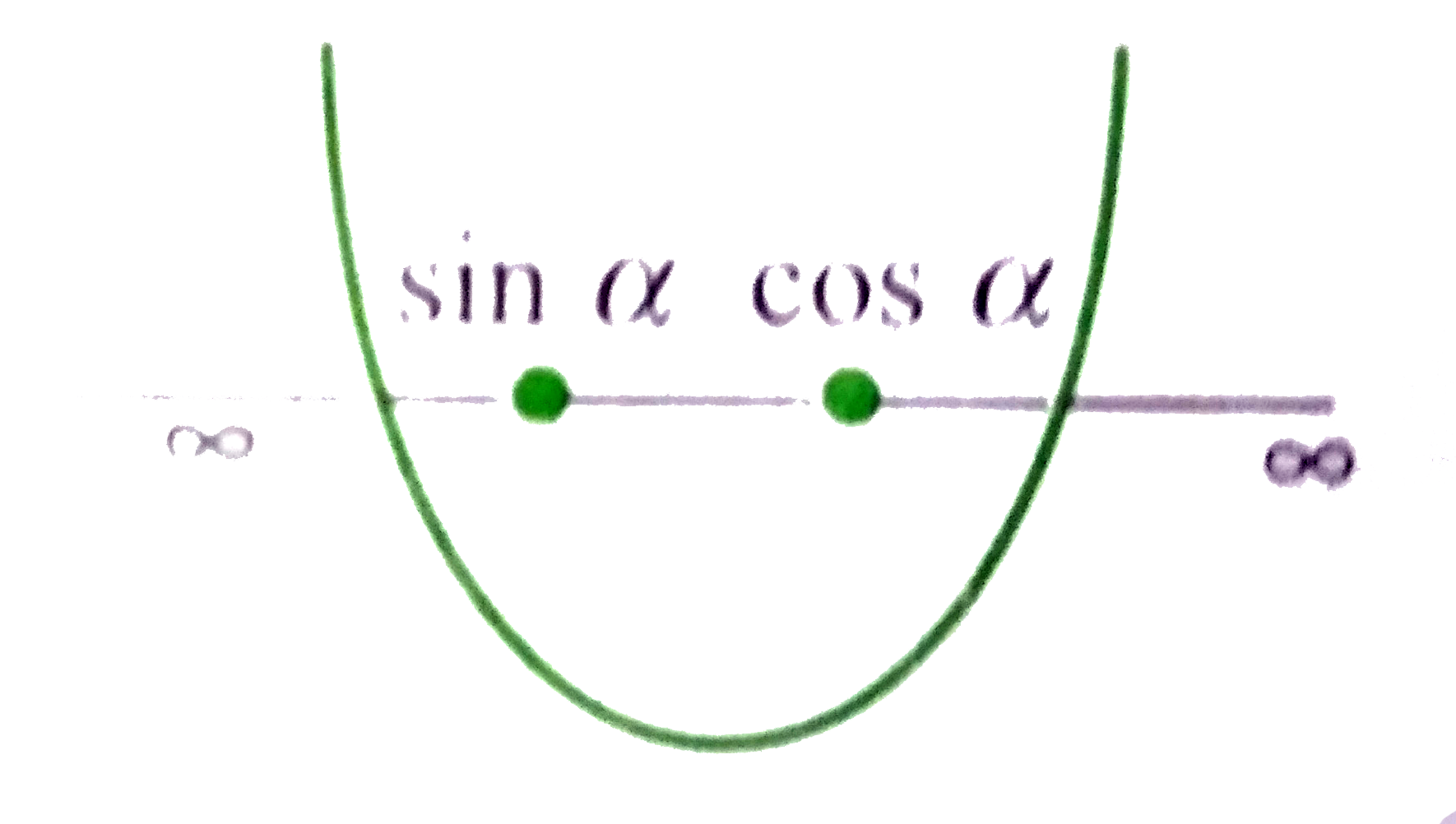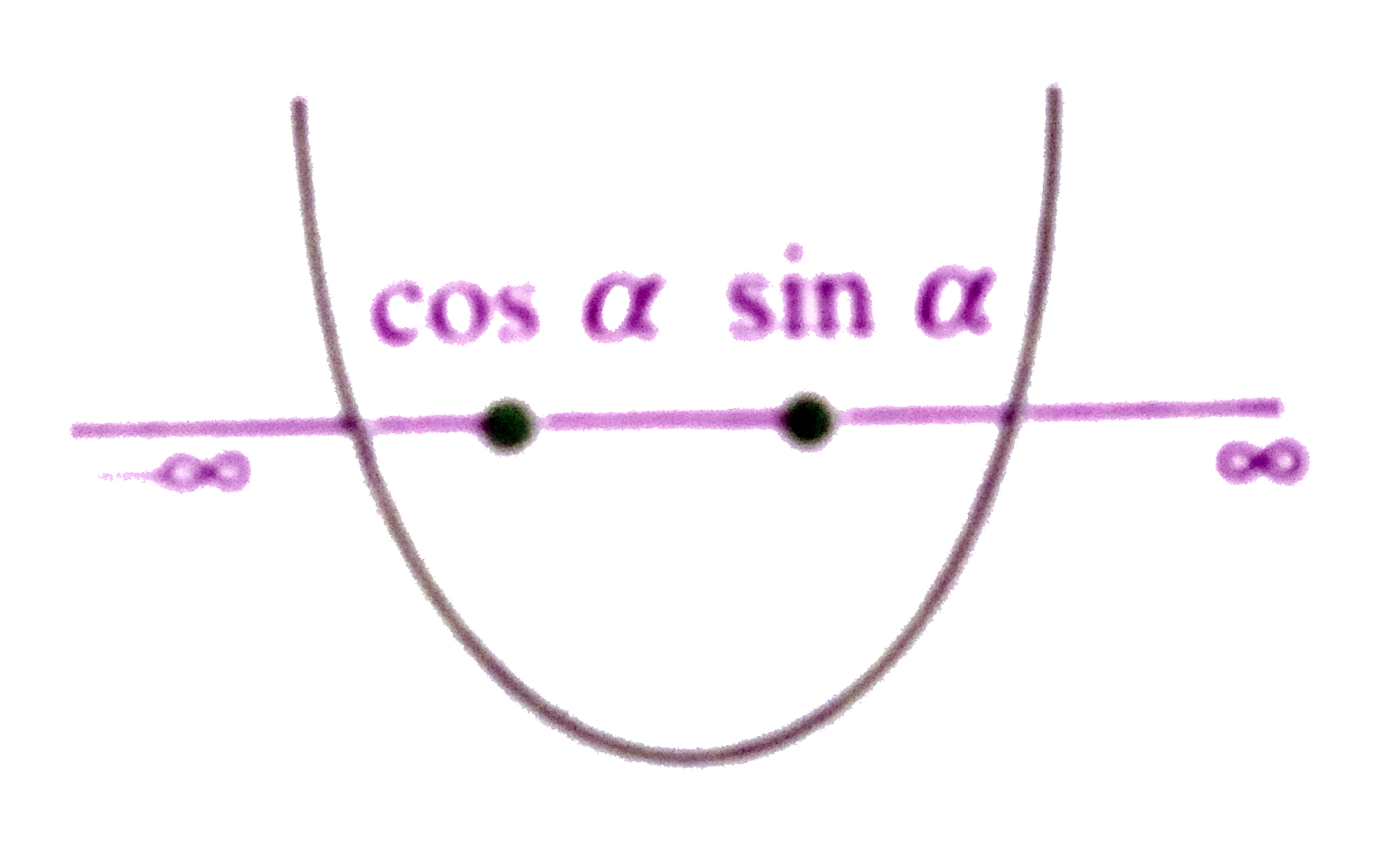Consider equation (x−sinα)(x−cosα)−2=0 . Which of the following is /are true?
If 0<α<π4, then the equation has both roots in (sinα,cosα)
If π4<απ2, then the equations has both roots in (sinα,cosα∞)
If 0<α<π4, the one roots lies in (−∞,sinα) and the other in (sinα,∞)
If π4<α<π2 then one root lies in (−∞,cosα) and the other is (sinα,∞)
The correct Answer is:3,4
Let , f(x)=(x−sinα)(x−cosα)−2
Then. f(sinα)=−2<0 and
f(cosα)=−2<0 and
f(cosα)=−2<0
So, sin αandcosα lie between the
roots


Topper's Solved these Questions
- THEORY OF EQUATIONSBOOK - CENGAGE PUBLICATIONCHAPTER - THEORY OF EQUATIONSEXERCISE - Linked Comprechension Type
37 Videos
- THEORY OF EQUATIONSBOOK - CENGAGE PUBLICATIONCHAPTER - THEORY OF EQUATIONSEXERCISE - MATRIX MATCH TYPE
6 Videos
- THEORY OF EQUATIONSBOOK - CENGAGE PUBLICATIONCHAPTER - THEORY OF EQUATIONSEXERCISE - Single Correct Answer Type : Exercise
89 Videos
- STRAIGHT LINESBOOK - CENGAGE PUBLICATIONCHAPTER - STRAIGHT LINESEXERCISE - ARCHIVES (NUMERICAL VALUE TYPE)
1 Videos
- THREE DIMENSIONAL GEOMETRYBOOK - CENGAGE PUBLICATIONCHAPTER - THREE DIMENSIONAL GEOMETRYEXERCISE - All Questions
291 Videos
Similar Questions
Knowledge Check
If 1 lies between the roots of the equation 3x2−3sinαx−2cos2α=0, the α lies in the interval
A(0,π2)B(π12,π2)C(π6,5π6)D(π6,π2)∪(π2,5π6)Let f(x)=sin2(x+α)+sin2(x+β)−2cos(α−β)sin(x+α)sin(x+β). Which of the following is TRUE ?
Af(x) is strictly increasing in x∈(α,β)Bf(x) is strictly decreasing in x∈(α,β)Cf(x) is strictly increasing in x∈(α,α+β2) and strictly decreasing in x∈(α+β2,β)Df(x) is a constant functionLet sinα,cosα be the roots of the equation x2−bx+c=0. Then which of the following statements is/are correct?
Ac≤12Bb≤√2Cc>12Db>√2
Let f(x)=sin2(x+α)+sin2(x+β)−2cos(α−β)sin(x+α)sin(x+β). Which of the following is TRUE ?
View SolutionIf sin2α, 3cos2α are the roots of the equation 4x2−3px+k=0 ,then which of the following is not true?
View SolutionLet λ and α be real. Then the numbers of intergral values λ for which the system of linear equations
λx+(sinα)y+(cosα)z=0
x+(cosα)y+(sinα)z=0
−x+(sinα)y−(cosα)z=0 has non-trivial solutions is
View SolutionEliminate θ from the following equations: xsinα+ycosα=pandxcosα−ysinα=q
View SolutionLet λ and α be real. Then the numbers of intergral values λ for which the system of linear equations
λx+(sinα)y+(cosα)z=0
x+(cosα)y+(sinα)z=0
−x+(sinα)y−(cosα)z=0 has non-trivial solutions is
View Solution
